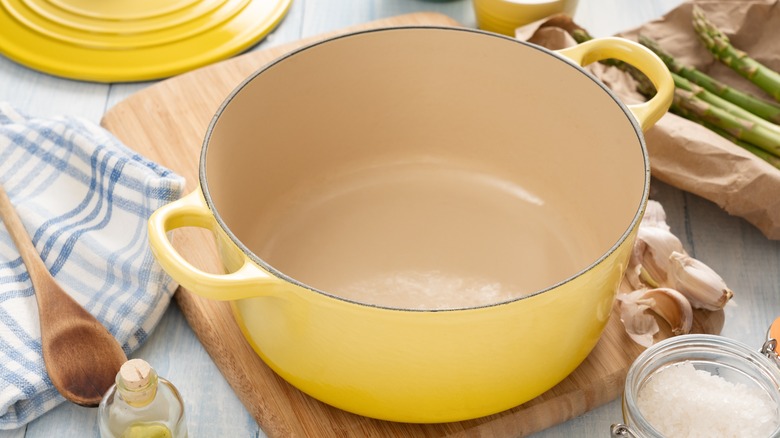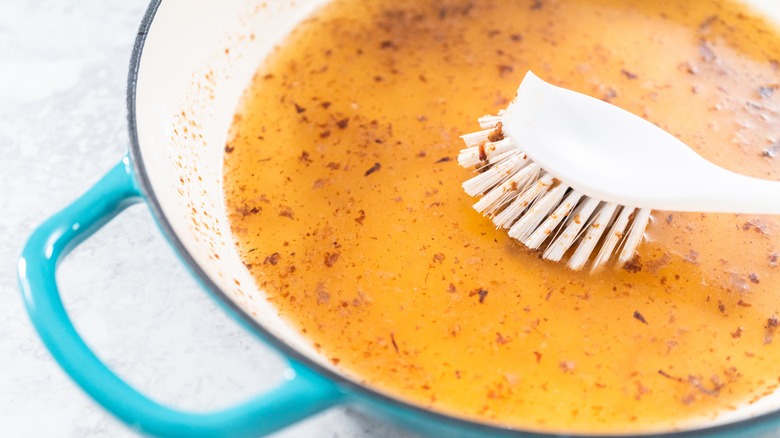Why You Should Avoid Citrus At All Costs When Cleaning Your Dutch Oven
The Dutch oven may be one of, if not, the most significant pots to cook in. Make your spicy buttermilk fried chicken or simple roasted pork loin in one of these enameled pots, and rest assured you are going to wind up with one of the most tender, moist pieces of meat your mouth has ever experienced. However, when it comes to the maintenance of this prized culinary possession, there are several crucial tips for cleaning your Dutch oven you want to adhere to, including avoiding any cleaners that have a citrus element to them.
Sure, citrus makes everything it touches smell that much better. It is an aromatic aphrodisiac that is perfectly suited for cleaning if you want to impart a bright and fresh scent; however, it is also enamel's nemesis. Citrus cleaners can steal the shine from your Dutch oven, leaving it dull and lackluster. Given how expensive this cooking vessel can be, using a nice smelling cleaner is not worth the risk of ruining its appearance.
Soap and water does the trick
That said, do citrus-based cleaners really mess with your cooking? No. Do they diminish the integrity of the pot? Again, no. Which leads us to this: If you don't care about your pots and their gleaming beauty, then go right ahead and use your citrus cleaner. However, if you are into appearances — and most people are — skip the citrus and instead use warm, soapy water to clean away any dirt and grime from whatever meal you cooked up in your enameled cast iron pot.
If there is still a stuck on, burnt-on, stubborn food remanent that doesn't want to budge, you can always turn to baking soda for a little assistance. Because baking soda is a mild alkaline, you can use this powdery substance to help remove the grime buildup. Simply boil some water in your enameled cast iron pot, add some baking powder, and witness how all of those remaining food bits will come right off the bottom and sides of your Dutch oven with some scrubbing. Bon Appetit!

